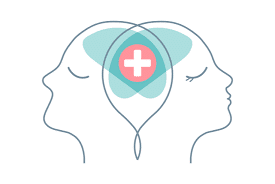Everybody needs a little help sometimes. We’ve put together 12 easy ways for you to support your own emotion health.

1. Stop being so serious – take things lightly and with humor
- You can’t control what happens in your life – but you can choose how you respond
- How often have you laughed about a situation you thought was serious, when you shared it with friends later on?
- How often have you realized – when looking back – that it wasn’t really that big of a deal?
- How often have you noticed that what happened to you was actually a good thing and turned out to be FOR you, not against you as it seemed in the first place?
2. Stop taking things personally – it’s not about you
- Understand that people sometimes project, and dump their anger and frustration to make themselves feel better
- They might have had a bad day, or you might remind them of someone that triggers old emotions in them
- You only feel attacked and judged when you yourself believe it to be true
3. Breath deeply before acting
- When something is upsetting you, SLOW down, take a few deep breaths and ground yourself
- Then choose how you want to respond
Read more in the book “Mental Health 101 For Teens: The Practical Guide to Mental Health, Self-Esteem, & Emotional Intelligence“
4. Speak and live your truth
- Be honest with yourself and others
- Spend time doing what is truly meaningful and valuable to you
- Don’t try to please others and fulfill their expectations (in work, relationships, with friends and family)
- Dare to be you
5. Accept change
- Life is always changing
- Don’t resist and try to hold on
- Trust that things will work out
- Allow the possibility that things even get better for you

6. Listen to your gut feelings
- Be aware of the difference between your “inner voice” and your emotions
- Slow down and see how something feels to you before you act or decide
- Use your “inner voice” as a tool to know what’s right for you in this moment
7. Be kind and gentle to yourself
- “Get off your case”
- You are your biggest judge
- Acknowledge your needs and desires
- Allow yourself to be vulnerable, (it is ok to make mistakes, to feel hurt, sad,..)
- Care for you as you would for a child (inner child)

8. Recharge regularly
- Before you are “burned out”
- Do things that are really nourishing you – not just what you think you “should” be doing – sleep in or nap, go to a movie, play sports, talk to a friend, take time out and retreat, read, take a walk in nature, pamper yourself with a body or beauty treatment, sauna, …
9. Don’t try to be “right”
- Be aware that there are as many realities as there are people in the world
- There are only different perceptions, opinions, values
- Let others have their opinion – for your own peace
- Arguing doesn’t get you anywhere
10. Forgive
- Let go of resentments for your own peace
- Try to understand why someone acts the way they do
- Then compassion and “letting go” often follow naturally
- Don’t make yourself sick with ideas about “what could have or should have been”
11. Eat well
- Eat mostly fresh organic vegetables, fruits, nuts and seeds
- Eat simply, slowly and enjoy your food
- Avoid white flour, white sugar, coffee, sodas and alcohol
- A balanced diet supports a balanced body and balanced emotions
12. Exercise at least 3 times a week
- Exercise releases endorphins that make you feel happy
- Make it fun – don’t force yourself
- Be creative – try alternative exercises like yoga, pilates, rebounding
- Make it simple – walk for 30 minutes
BONUS: Give natural and alternative medicine a try
- Many people get great results from homeopathy, acupuncture, reiki, bach flowers, essential oils….just to mention a few
- Keep searching until you achieve what you want
